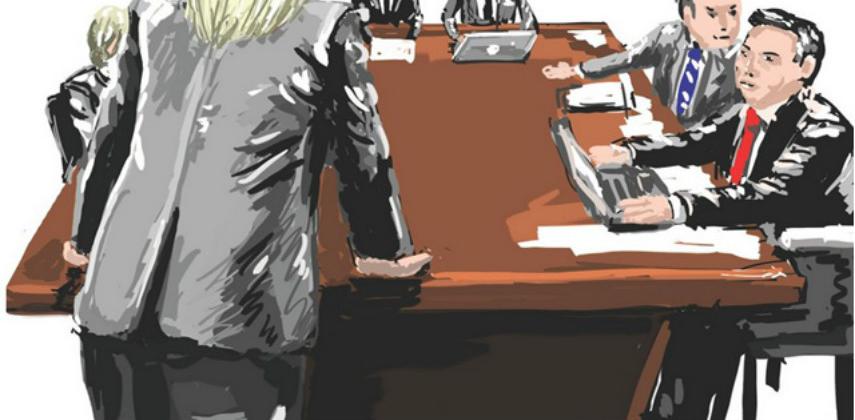Is the leadership of your company a mystery that confounds you and your career expectations? This is sometimes so, even if you are one its "big potatoes", to use the term beloved of the Hong Kong corporate world. If the answer is yes, Bob Frisch has penned the book for you.
Frisch asks: do senior management teams (SMTs) really make all those critical decisions? And deduces that, in reality, these decisions are typically made by the boss and a small group of confidants - a "team with no name", or "kitchen cabinet" - that functions outside the perceived parameters of the company's formal operations.
Meanwhile, other key players wonder why they weren't even consulted in a timely manner. The dysfunction resulting from this disconnect has often led to unproductive team-building exercises. But such problems, Frisch reveals, are ones of process and structure, with no basis in psychology or personalities.
This bold work, by one of the most original thinkers in corporate training, addresses two key areas and can greatly help readers on senior branches of the organisational tree. Firstly, it helps readers understand and utilise the way decision-making actually takes place in their organisations, and secondly, by showing how these teams-at-the-top can be leveraged to the reader's best advantage.
Moreover, by unleashing the full potential of their SMTs, companies will achieve better business results, while enhancing organisational harmony.
Above all, if you're a boss, this book offers you ways and means of avoiding that dreaded but frequent eventuality - the frowning manager in your office asking: "Why wasn't I in the room?"
The central premise of Who's In The Room? is that the most crucial decisions rarely get made in accordance with the organisation chart, and Frisch rolls out the very persuasive case that the decision-maker will secure a better outcome if he or she relies on advice from the unofficial "kitchen cabinet", rather than the formal executive team.
The composition of this informal-yet-powerful group varies based on the nature of the decision being made, but is highly efficient, existing as it does outside the daily politics and baggage of the formal organisational-chart structure. This frees up the "official" team to tackle the issues that require and benefit most from cross-organisational input, such as goal-setting, allocating resources, and managing dependencies.
Fearlessly eschewing decades of conventional organisational psychology, Frisch posits that the solution lies not in changing behaviour, but in dismantling the SMTs as the centre of major corporate decision-making. Using a broad portfolio of teams - large and small, permanent and ad hoc - effective leaders can match each decision to the appropriate team in a fluid and versatile approach usually overlooked in more mainstream texts. Then Frisch shows how leaders can unleash the power of key players against a specific set of critical tasks for which they are uniquely suited.
The appropriate teams are put together to address the hot-ticket issues at the right time, and the skills and talents of the organisation's most senior and valued leaders are more effectively deployed.
The manner in which this book debunks the notion of the formal "top team" is its most powerful and instructive message. But the central thesis is buttressed by detailed case-studies and observations about management in action.
There are countless business titles addressing the issue of how to make teams perform better. What makes Who's In The Room? different and, dare one ask, better?
"I suppose it starts with my background," says Frisch. "Almost everyone working in this area of executive teams is what I call a 'behaviouralist'. They focus on the behaviours of individuals and of groups."
Frisch says he and his team of consultants focusing on designing strategy off-site have spent thousands of days with management teams as they struggle with their most critical issues.
He says most experts cite behaviours and relationships among executives as crucial to having an effective team. However, he says, his experience leads to "a strikingly contrarian view".
"Stop looking at personalities, and focus on structures and processes underlying decision-making. Break the 'taboo' and get to the core of the topic, unleashing the power of the leadership team," Frisch concludes.


